Questions are part of the process.
Seeking an autism or neuropsychological evaluation can bring up a lot of unknowns. That’s okay. We’ve gathered the most common questions families ask—about testing, results, insurance, and everything in between—to help you feel informed, supported, and ready for what’s next.
Frequently asked questions
You don’t have to figure this out on your own. Whether you're just starting to explore concerns or already scheduled an evaluation, it’s completely normal to have questions along the way.
We’re here to help with honest answers and compassionate support.
Still unsure? Contact our team to talk with someone who can help you take the next step.
Before you Schedule
How do I know if my child might need an autism evaluation?
If you’ve noticed differences in how your child communicates, plays, or interacts with others—or if your pediatrician has expressed concern—an evaluation can help provide clarity and peace of mind.
Is there such a thing as getting evaluated too early?
No. In fact, the earlier we evaluate, the more we can do. Autism can be reliably identified by age 2, and earlier intervention often leads to better long-term outcomes.
Does my child need a referral to get tested?
You can contact us directly to schedule, and we will advise you if a referral is needed based on your insurance provider.
What ages do you evaluate?
Our Early Autism Testing Clinic specializes in children ages 4 and under. For older children through age 18, we also offer comprehensive neuropsychological testing through North Shore Pediatric Therapy.
What are the signs of autism I should be looking for?
What are the signs of autism I should be looking for?
Signs can vary by age, but common early indicators include limited eye contact, delayed speech, repetitive behaviors, or not responding to their name.
Review our Signs of Autism page for more information.
What other concerns do you test for?
Depending on the child’s age, our neuropsychological evaluations can address concerns around Attention Deficit Hyperactivity Disorder (ADHD), learning disorders, emotional concerns such as anxiety and depression, learning disorders, sleep disorders, and more. Neuropsychological evaluations can address cognitive ability, academic achievement in reading, mathematics, and written expression, visual-spatial, visual-motor, and graphomotor integration, attention, executive functioning (organization, planning, problem-solving), memory, language functioning, and social/emotional/behavioral functioning.
What’s the difference between a medical diagnosis, a school eligibility, Early Intervention, and an ADOS done by a BCBA?
Here’s a quick breakdown:
- A medical diagnosis (from a neuropsychologist or developmental pediatrician) is the only type that qualifies your child for insurance-funded services like ABA therapy and is recognized across systems.
- A school eligibility determines whether your child qualifies for support at school (like an IEP), but it’s not the same as a diagnosis.
- Early Intervention (EI) provides free therapy for kids under 3 in Illinois based on developmental delays—but it doesn’t diagnose autism.
- A BCBA-administered ADOS is a screening tool used by some ABA clinics during intake. It can help guide therapy but doesn’t count as a diagnosis.
My child was evaluated by Early Intervention. Isn’t that enough?
Early Intervention is a great start—it can help kids access therapy early in life. But EI doesn’t provide formal diagnoses. If you want to access services like ABA or need documentation for school, you’ll still need a medical diagnosis.
My child has an IEP from school for autism. Does that mean they have a formal diagnosis?
Not necessarily. Schools use their own criteria to decide if a child qualifies for services under the autism category, but they do not provide a clinical diagnosis. You’ll need to see a licensed psychologist or developmental pediatrician for a diagnosis that’s accepted by insurance or outside providers.
A BCBA gave my child the ADOS—does that count as a diagnosis?
No, it doesn’t. While some ABA clinics use tools like the ADOS to screen for autism traits, only certain professionals (like neuropsychologists or developmental pediatricians) are legally and clinically able to diagnose autism.
So what exactly is a formal autism diagnosis?
A formal diagnosis:
- Is made by a licensed clinical psychologist, pediatric neuropsychologist, or developmental pediatrician
- Follows DSM-5 criteria
- Combines standardized testing (like the ADOS), developmental history, and clinical judgment
- Can be used to access ABA, insurance, school accommodations, and long-term supports
Can I use a school diagnosis or an ADOS by a BCBA to get ABA therapy covered by insurance?
Usually, no. Insurance companies almost always require a formal diagnosis by a licensed psychologist or physician. The same goes for many private providers and certain school supports.
What if my child has already been through one of these systems—do I need to “start over”?
Not at all. If your child already received school-based or EI support, or went through an ABA intake, that information is incredibly helpful. A formal evaluation simply fills in the rest of the picture and helps you access everything your child may qualify for.
Can my child be in Early Intervention and still get a private evaluation?
Absolutely. In fact, we encourage it. Many families begin with EI and then come to us for a full diagnostic evaluation to help with long-term planning and access to broader services.
If I’m going to do one thing, what should it be?
If you’re looking for clarity, next steps, and access to the widest range of support, a formal autism evaluation by a licensed neuropsychologist is the most comprehensive and actionable step.
Who can I talk to if I’m still unsure what’s right for my child?
We’re here to help! Our care team is happy to walk through your options and help you figure out whether now is the right time for an evaluation. Contact us
Scheduling & Availability
How soon can I get an appointment for the early autism testing clinic?
If you have a child between 18 months – 5 years old with autism concerns, we typically have immediate availability, with appointments within 1–3 weeks at our testing centers in Arlington Heights, Deerfield, and Naperville.
How soon can I get a neuropsychological testing appointment for a child older than five?
Depending on the complexity of testing needed, we would be able to place your child into a half day of testing or a full day of testing.
We are scheduling comprehensive neuropsychological evaluations for children older than 5 within 2-4 weeks.
Where do evaluations take place?
Evaluations are in-person at one of our four child-friendly Chicagoland centers, all of which occur inside of our North Shore Pediatric Therapy offices.
Will my insurance cover the evaluation?
In most cases, yes. We’re in-network with many major insurance plans and will check your benefits prior to your visit. However, we strongly recommend communicating with your insurance company directly to ensure coverage, and we can provide you with the billing codes needed to verify the information.
What if I don’t have insurance or want to self-pay?
We offer private pay options and are happy to walk you through them during your intake call.
The Evaluation Process
What happens during an early autism testing evaluation?
You will bring your child to their appointment and spend the first portion of the appointment discussing your child’s history with one of our Neuropsychologists. Our doctors will review your intake forms and observe your child’s behaviors.
After we learn more about your child, our neuropsychology technicians will administer play-based assessments such as the ADOS-2.
After the assessment, you’ll come back to discuss results and recommendations with your Neuropsychologist.
Will I be in the room with my child?
That depends on your child’s age and comfort level, but you’ll always be nearby and involved in the process.
How is autism diagnosed?
We use gold-standard tools like the ADOS-2, along with clinical interviews, developmental history, and behavioral observations—all aligned with DSM-5 criteria.
Do you evaluate for anything besides autism?
Our early autism testing appointments are dedicated exclusively to autism concerns. If your child needs a more comprehensive evaluation, we can schedule a more comprehensive testing appointment.
Our neuropsychologists can address concerns related to cognitive ability, academic achievement in reading, mathematics, and written expression, visual-spatial, visual-motor, and graphomotor integration, attention, executive functioning (organization, planning, problem-solving), memory, language functioning, and social/emotional/behavioral functioning.
After the Evaluation Process
When will I get the results of the early autism testing?
We’ll meet with you the same day as your evaluation to review results, answer questions, and provide next steps. After your feedback session, we’ll need 2-4 weeks to complete our official neuropsychological report.
When will I get the results of a comprehensive neuropsychological assessment?
Your feedback appointment will be scheduled 2-3 weeks after your testing appointment. At that time, you will discuss the results of testing with our neuropsychologists. After the feedback meeting, we’ll need about 4-5 weeks to complete our official neuropsychological report.
What happens if my child is diagnosed with autism?
We’ll walk you through your options—whether it’s ABA therapy, speech therapy, school support, or next steps with your pediatrician. We’re here every step of the way.
What if my child doesn’t receive a diagnosis?
Even without a diagnosis, the evaluation can uncover developmental needs and guide helpful support strategies—whether through therapy, home routines, or educational resources.
Will I receive a written report?
Yes, you’ll receive a comprehensive written report summarizing your child’s strengths, needs, and clinical recommendations. This can be shared with schools, physicians, or therapists.
Can I start therapy with your team after the evaluation?
Absolutely. Because the Chicago Autism Testing Institute operates within North Shore Pediatric Therapy, you’ll have access to a full range of services in more than 12 Chicagoland locations.
Our testing locations in the Chicagoland area
We believe evaluations should happen in spaces that feel safe, calm, and welcoming—especially for young children. That’s why we offer autism testing at several thoughtfully designed locations within North Shore Pediatric Therapy across the Chicago area. Whether you're close to the city or in the suburbs, our centers are built with families in mind and staffed by experts who truly care.
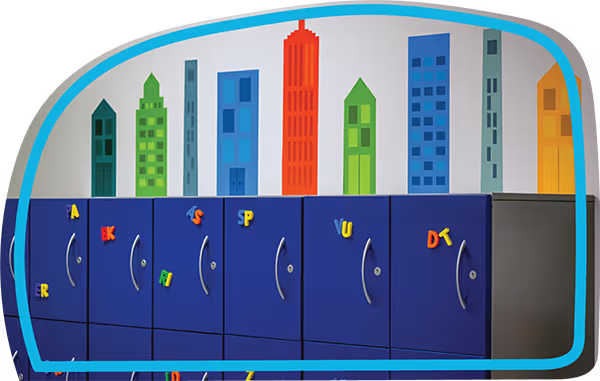
Arlington Heights
Arlington Heights, IL 60005
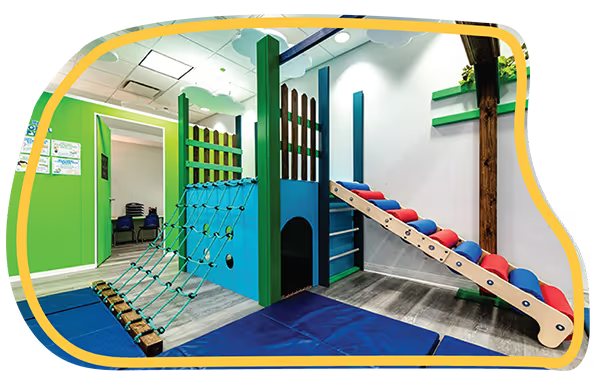
Evanston
Evanston, IL 60201
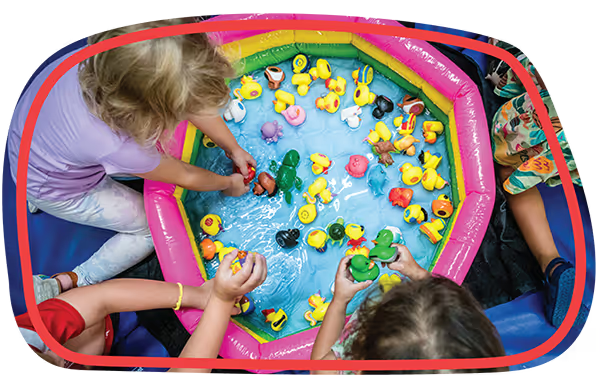
Des Plaines
Des Plaines, IL 60016
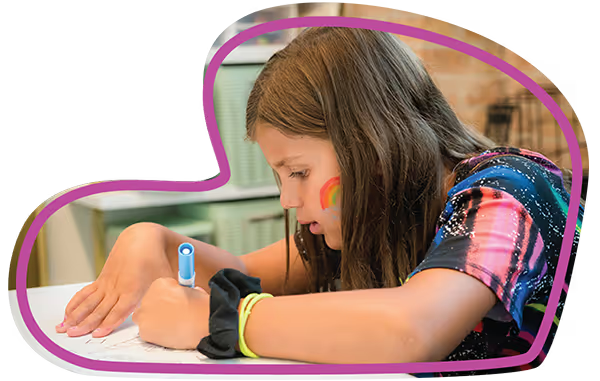
Naperville
Naperville, IL 60563
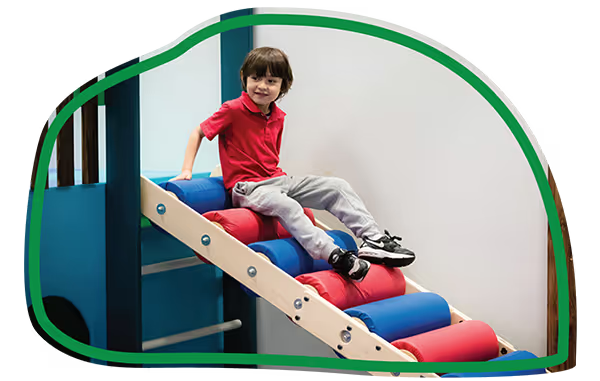
Deerfield
Deerfield, IL 60015
Take the first step
Connect with our team to schedule an evaluation or ask questions—we’re here for you.

